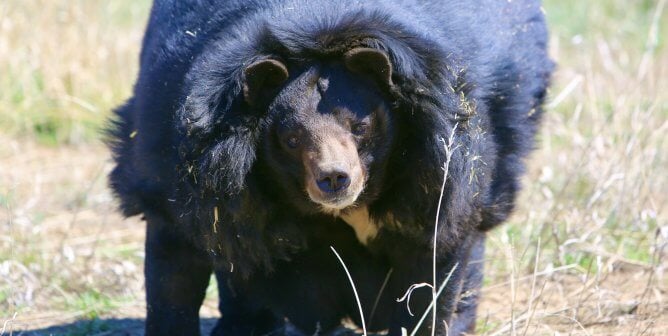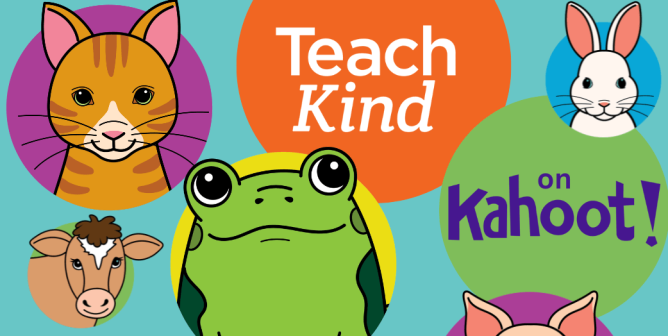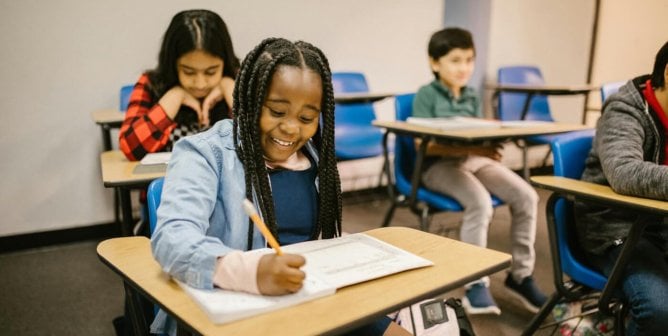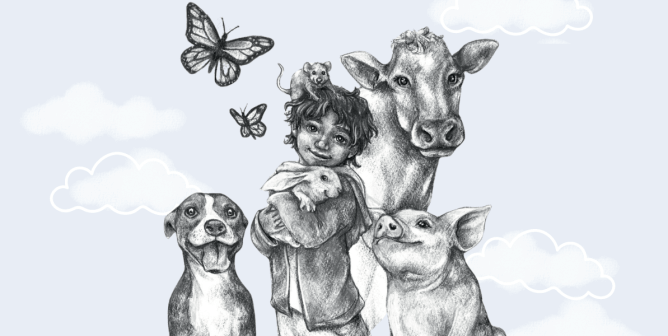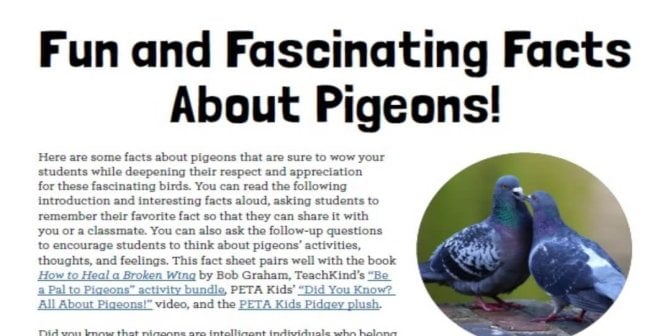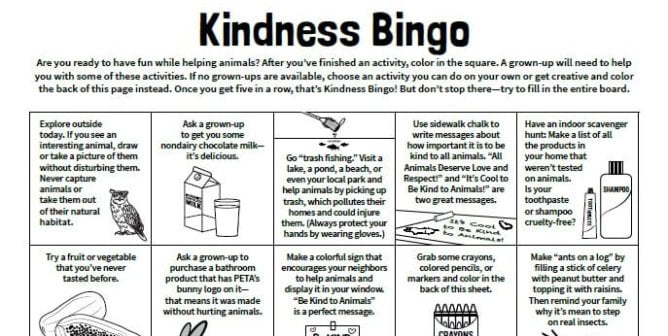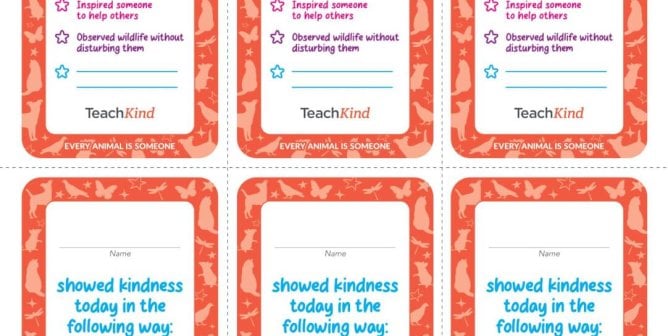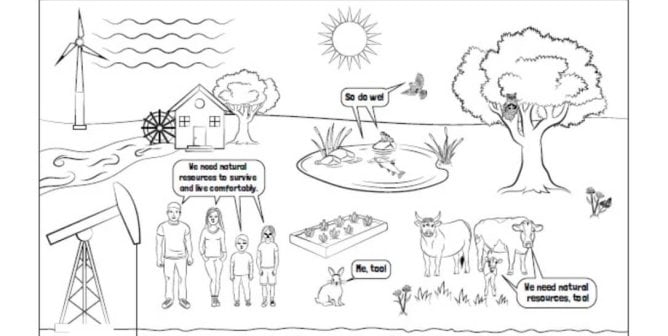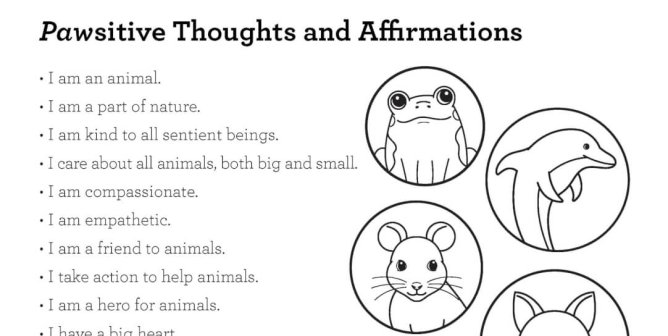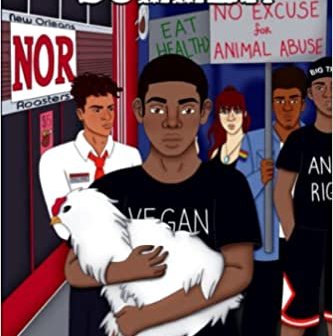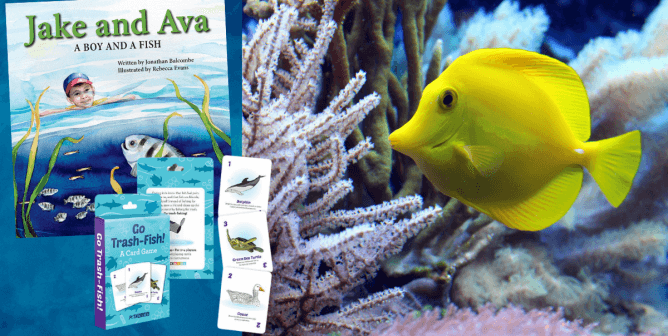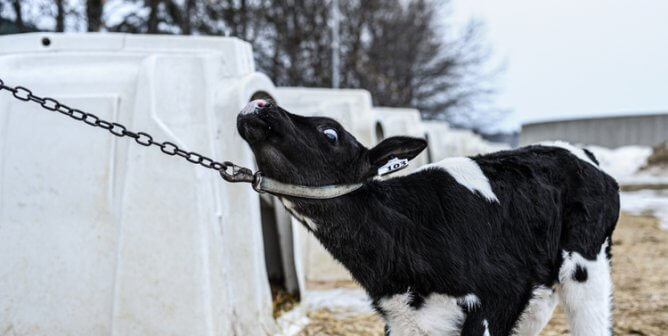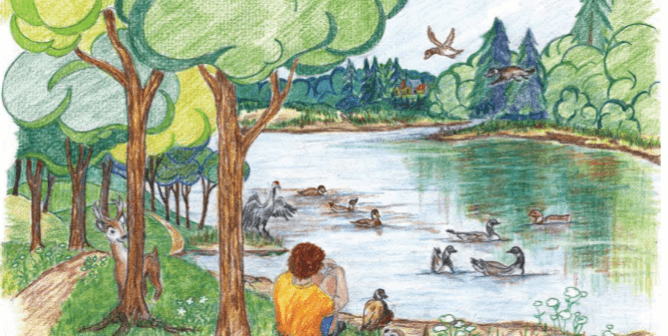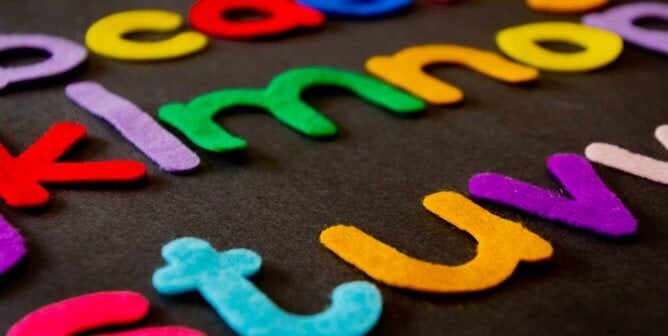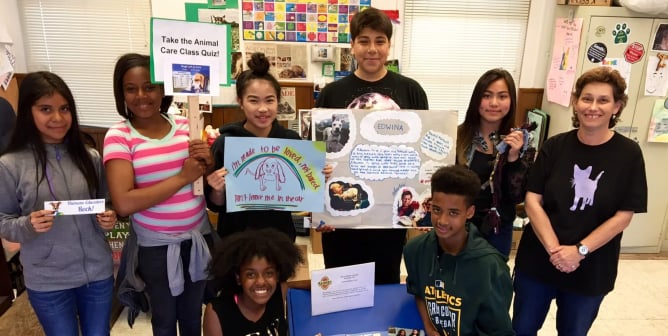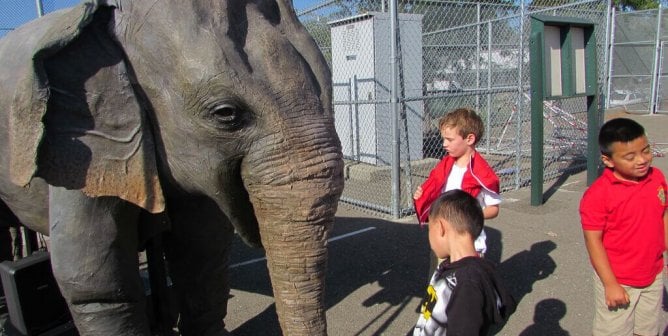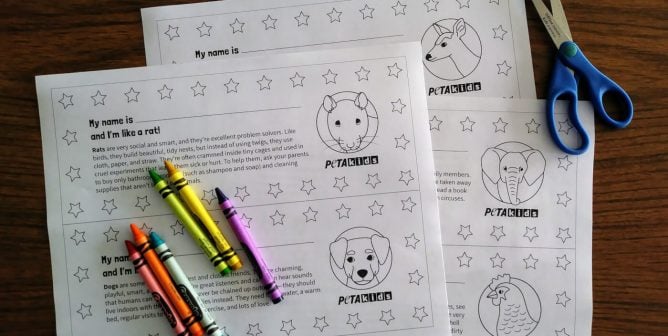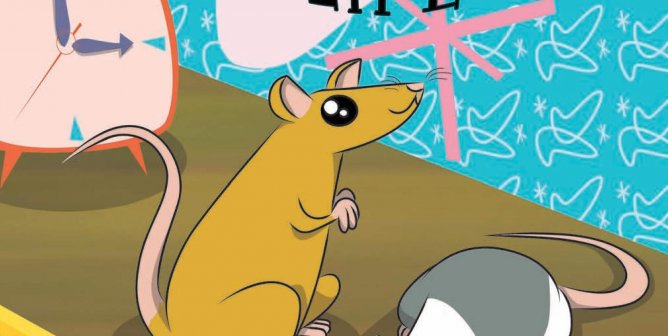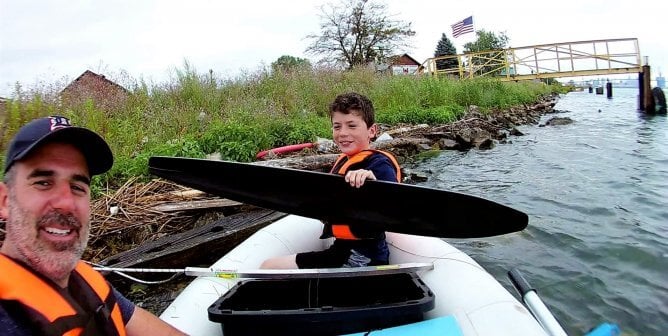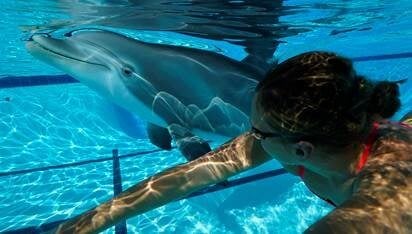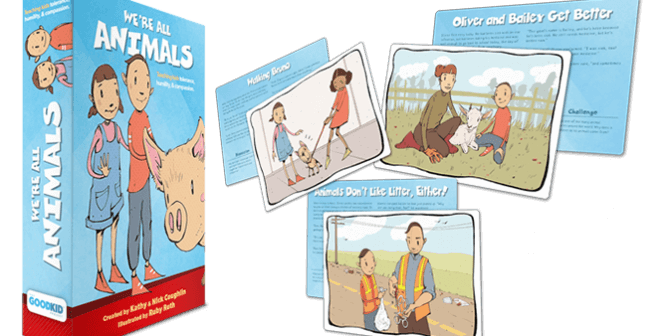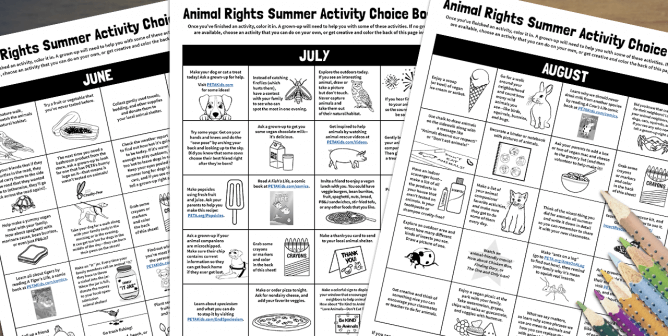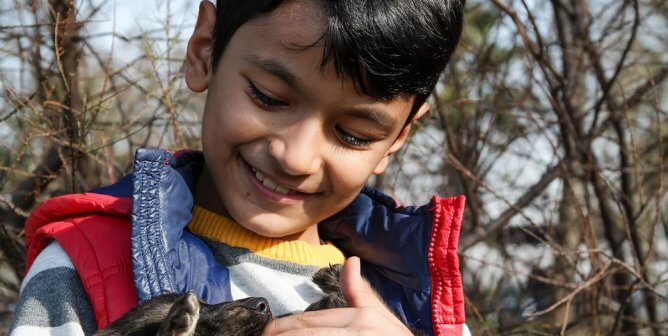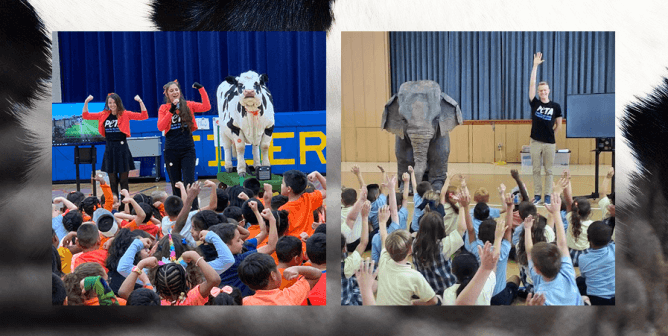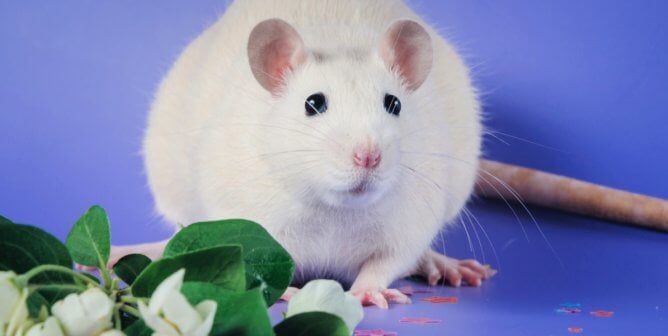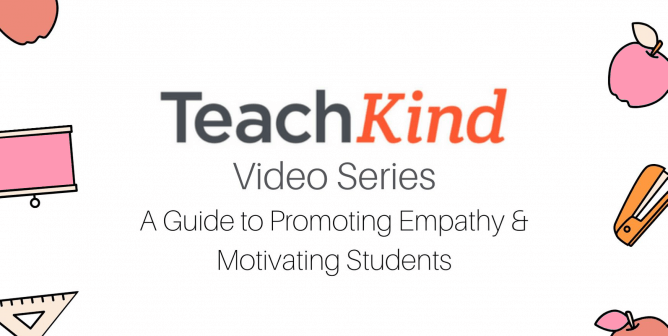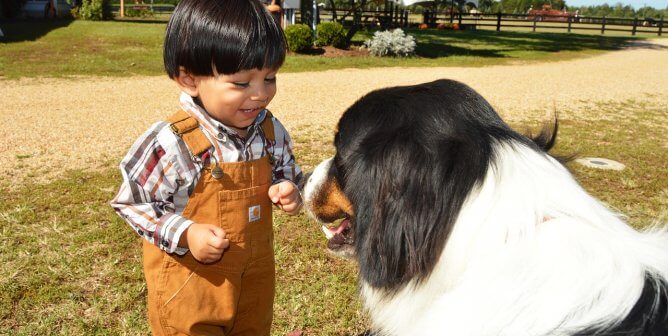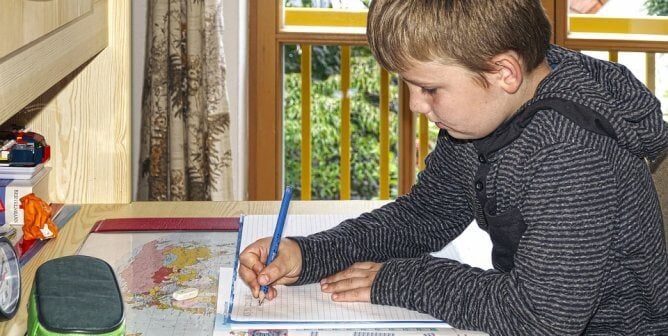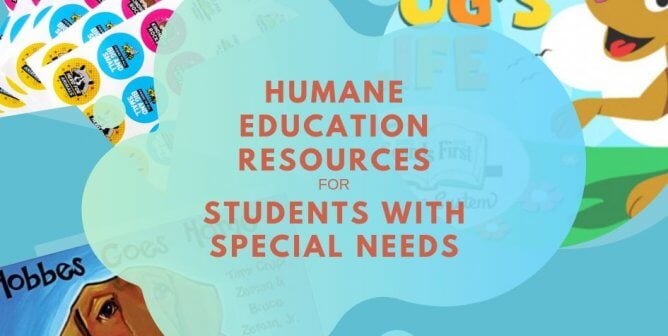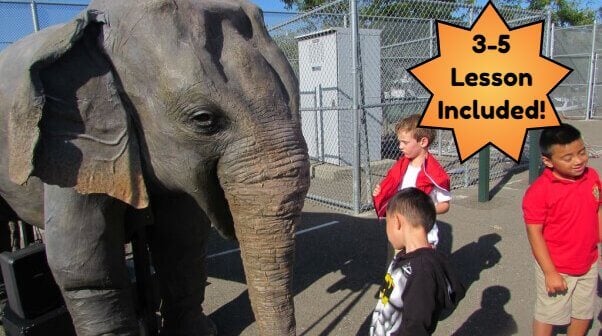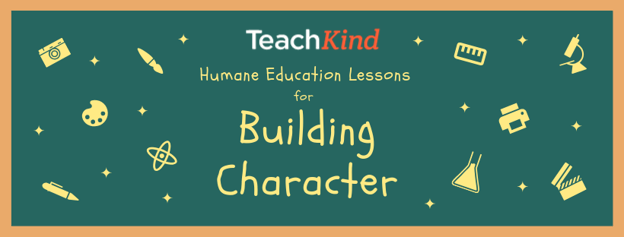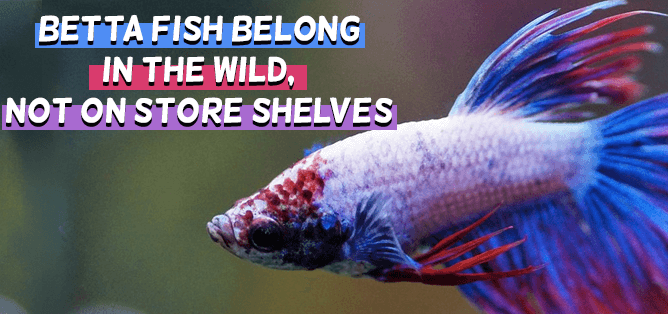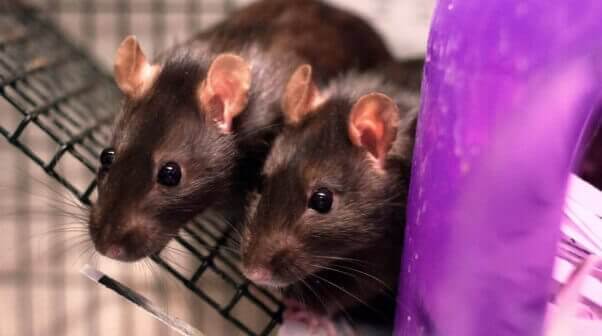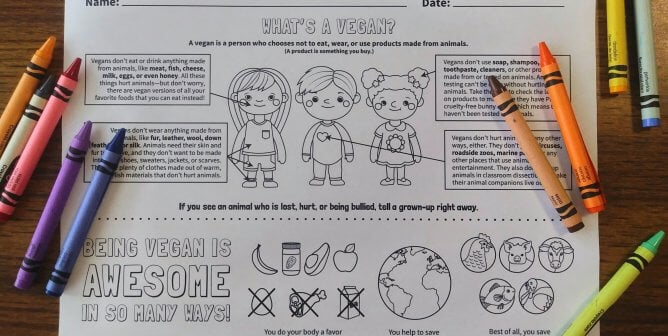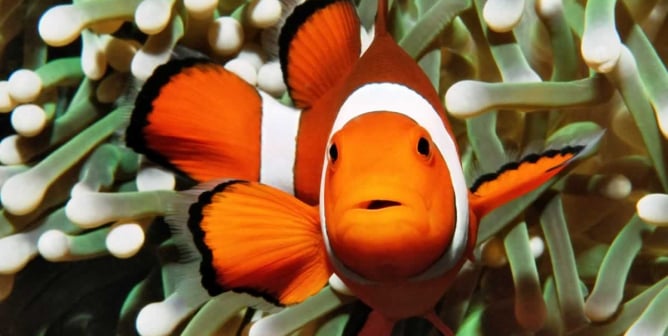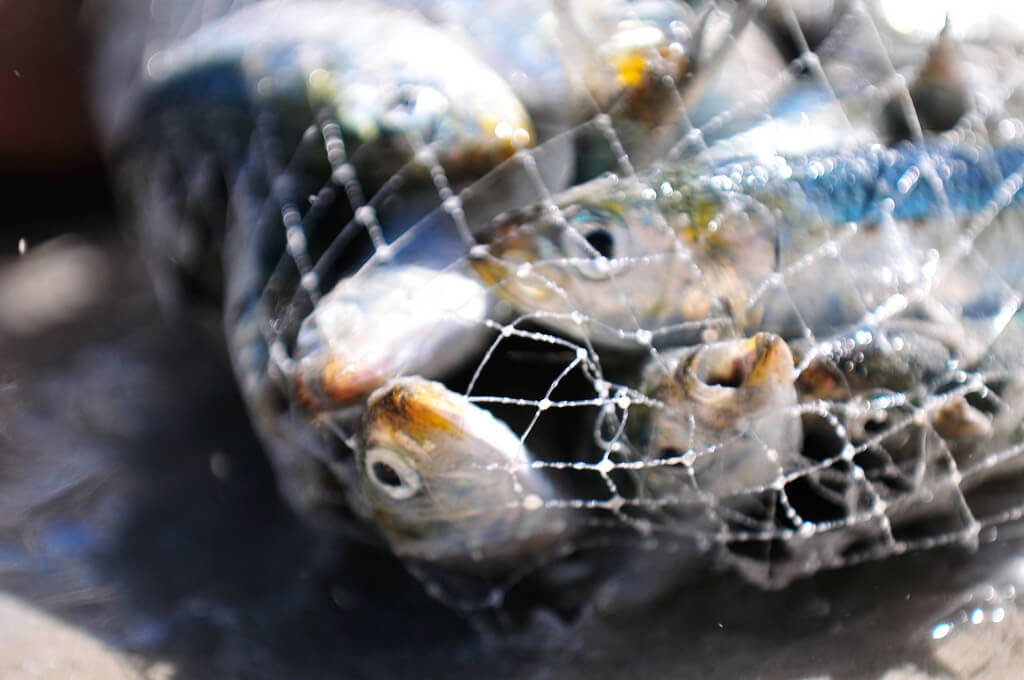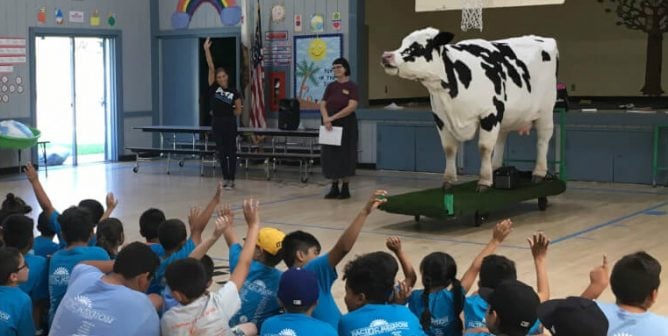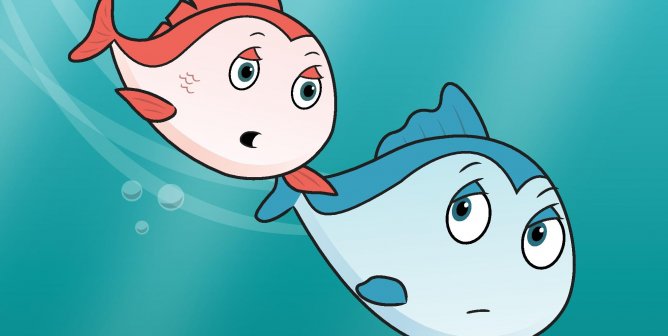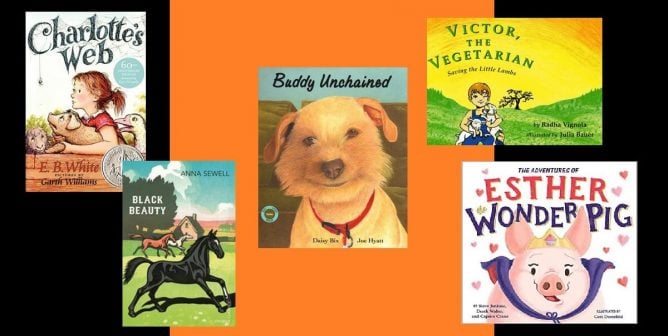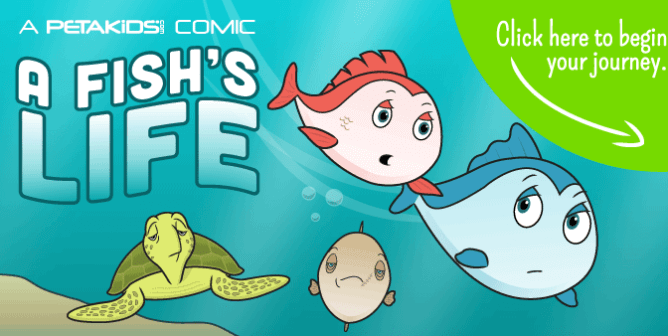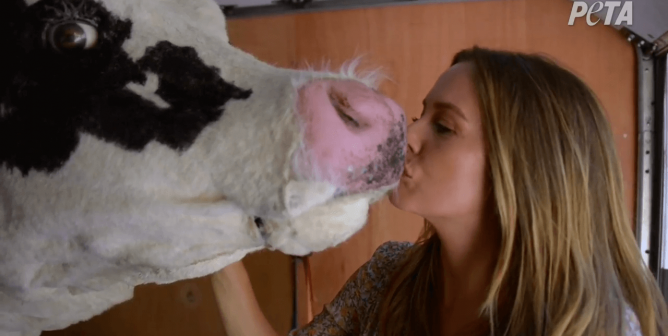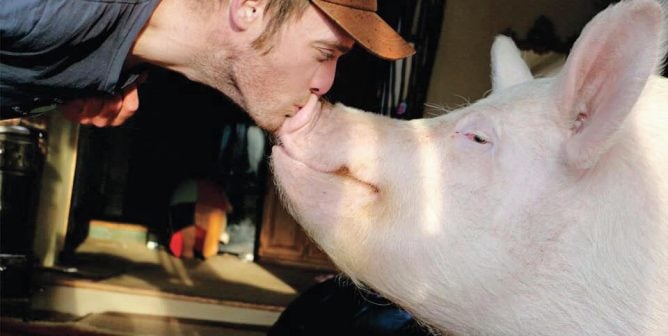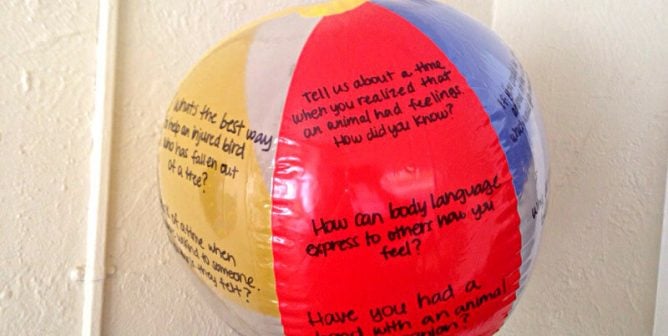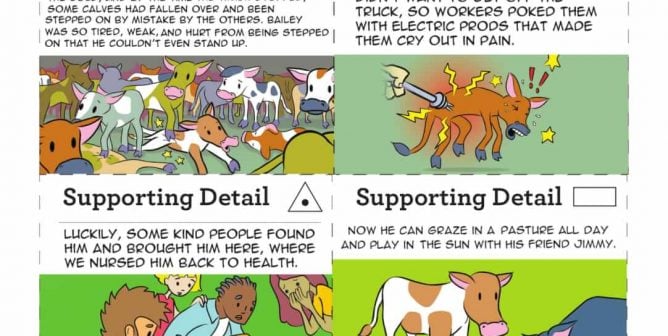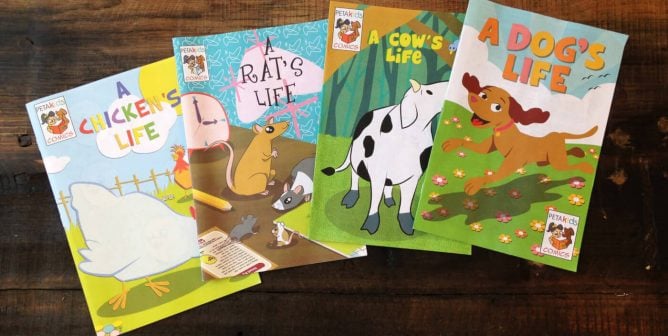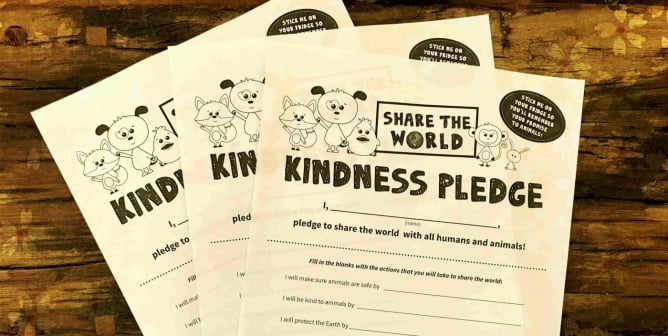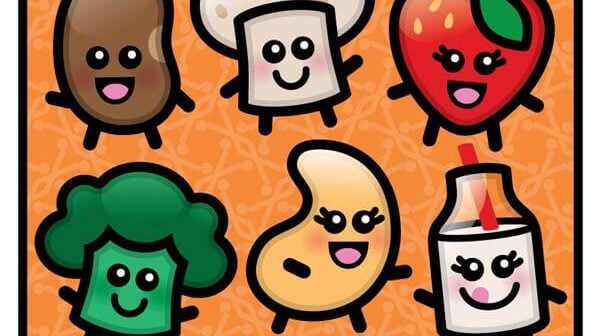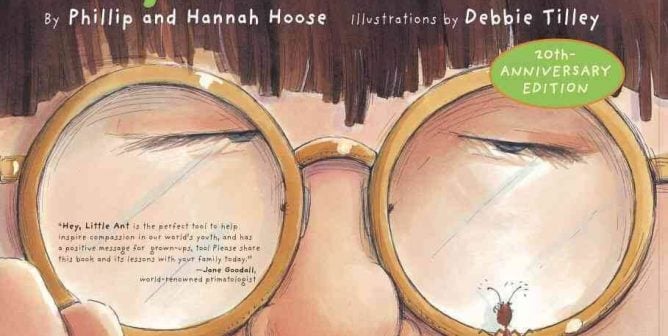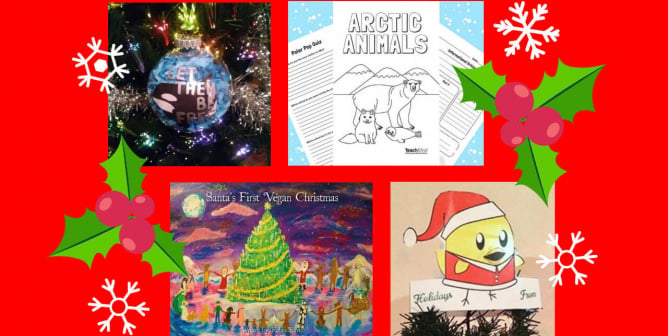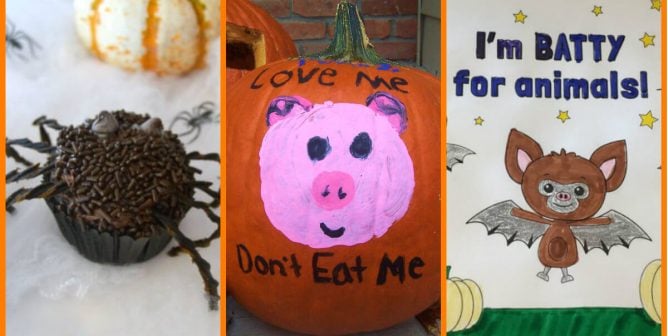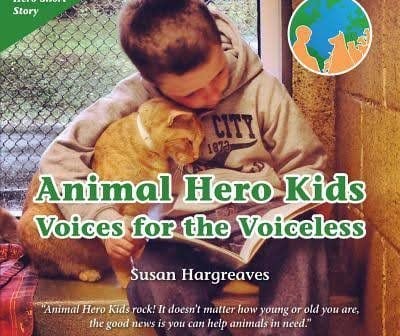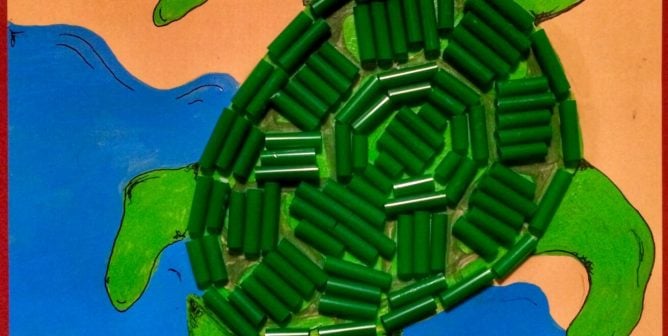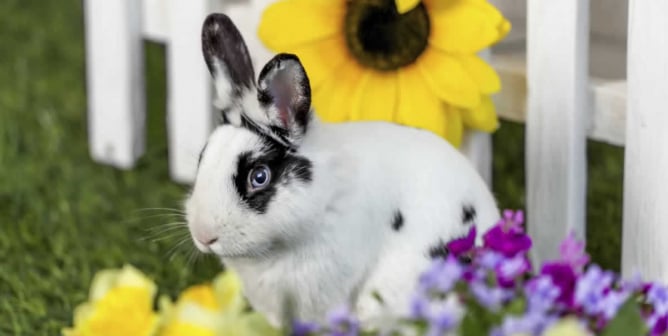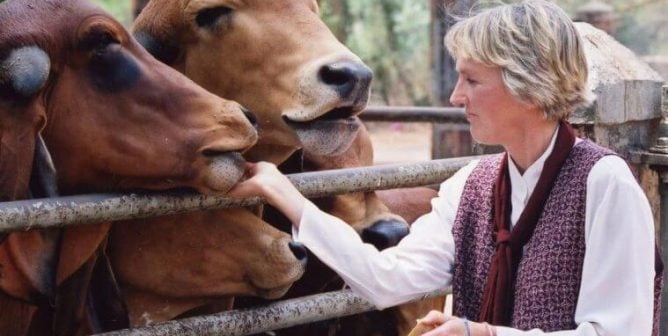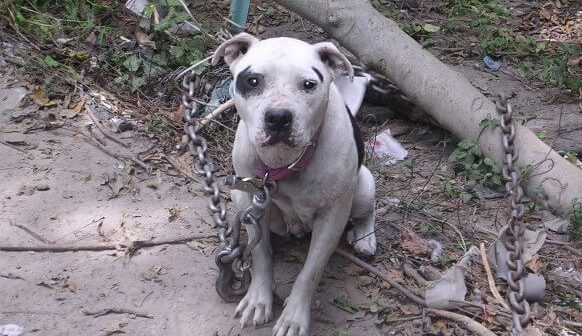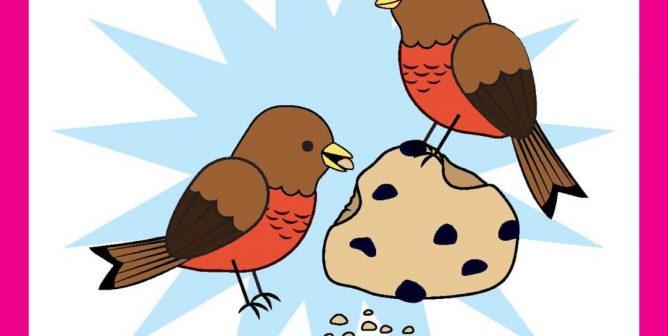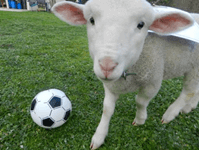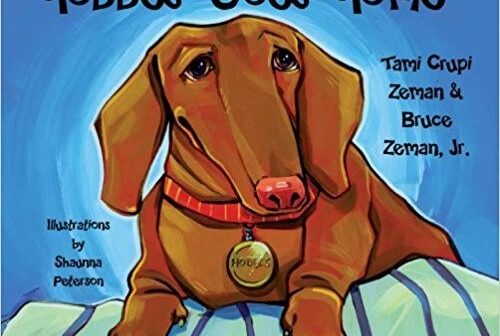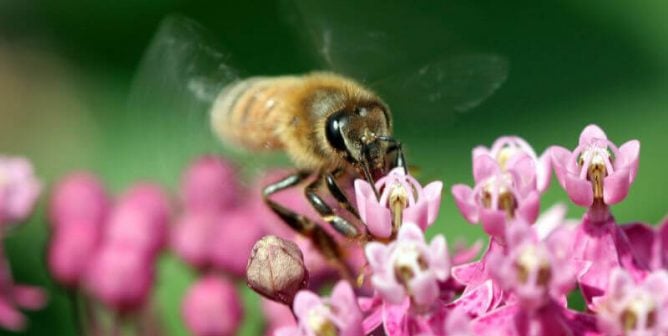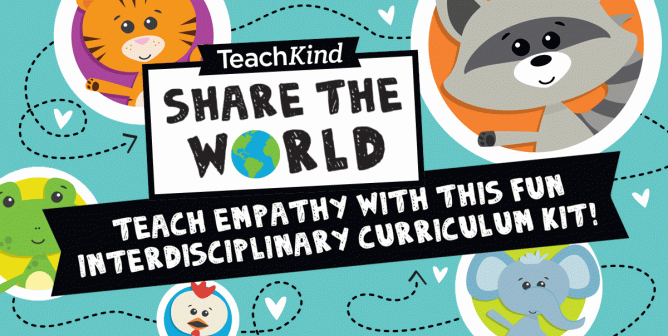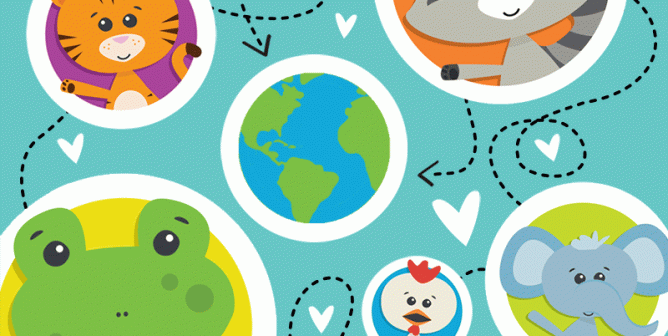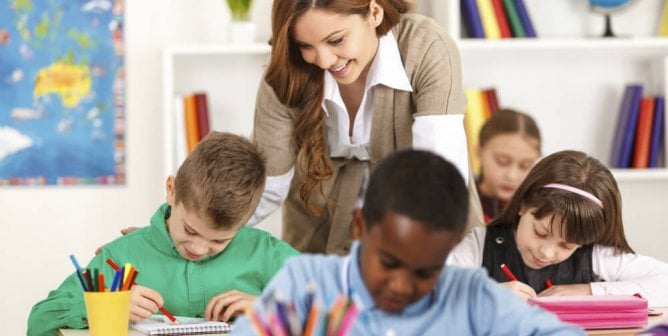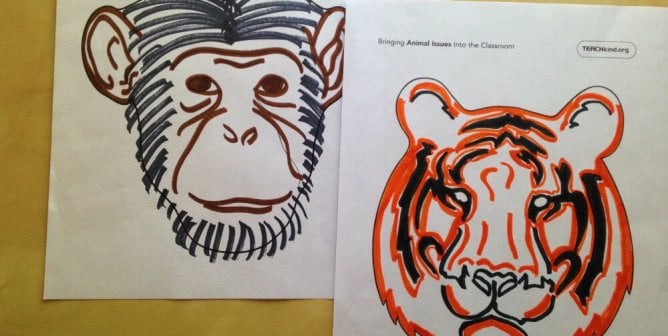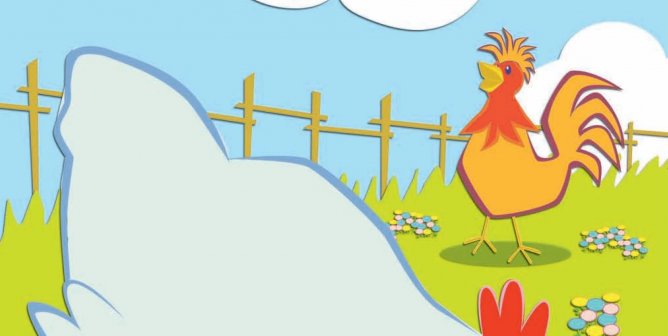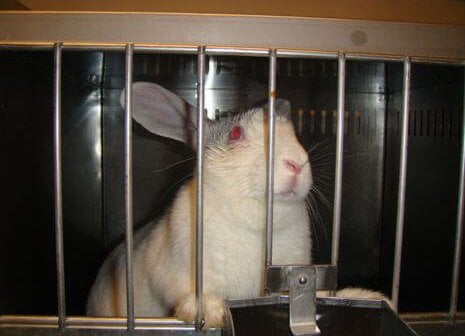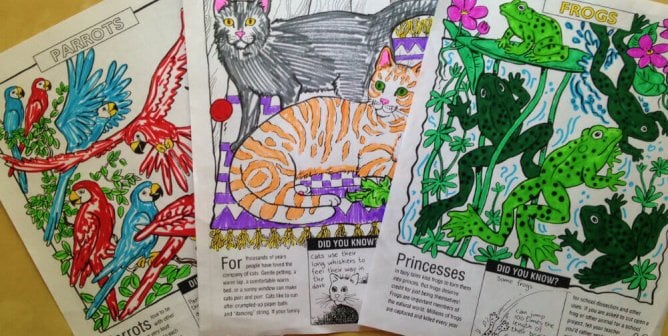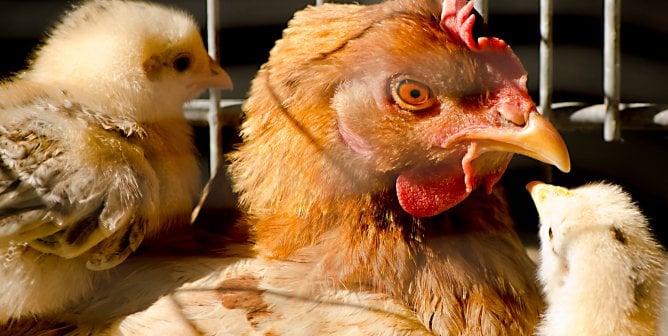Celebrate holidays all year round with holiday writing prompts designed for students of all grade levels. These prompts will inspire students to enjoy writing while reflecting on the important connection between humans and animals, fostering empathy and understanding. As we delve deeper into understanding animals, we discover reflections of ourselves in these sentient individuals. Encouraging … Read more »
If you are a teacher, parent, or caregiver who keeps up with educational trends, you’re likely aware of the mental health crisis affecting many young people today. The pressures of academic performance, social dynamics, and personal challenges have led to rising levels of anxiety, depression, and other mental health issues among K-12 students. Addressing this … Read more »
Are you a homeschooler seeking animal-friendly resources for your home classroom? You’ve come to the right place! With TeachKind’s curated list of resources perfect for at-home learning, it has never been easier to “feed two birds with one scone” by teaching foundational lessons that also foster compassion and empathy for animals. TeachKind’s Top Resources for … Read more »
We’re all animals, and although you may see some confused stares from your students when you tell them this, they’ll be interested to learn that we have more in common with other animals than they might think. These writing prompts for elementary schoolers have been designed specifically to help you navigate conversations on this topic … Read more »
“Unlocking the Animal World” takes children on a journey around the world—into the sky, the ocean, and the forest—to learn about the remarkable animals who share this planet with us.
This lesson plan is designed to help teachers present animal rights and environmental issues to their students. If you’re an educator, please feel free to adapt this material to fit your needs—and please contact us if you need help incorporating it into your curriculum. When you hear the word “fireworks,” you probably think of holiday … Read more »
Anyone who’s ever been to a park—or a parking lot—has likely seen pigeons, probably in large numbers. But how much do you know about these feathered friends? Maybe not much, and it’s probably safe to assume the same of your students. Both adults and children are less likely to appreciate animals they don’t understand, which … Read more »
Games are a great way to engage children and motivate participation, and when they promote empathy and compassion for others, everyone wins! That’s why we created Kindness Bingo. In this spinoff of the classic game, children are prompted to complete acts of kindness for others. Some of them are big tasks, like going “trash fishing” … Read more »
Kindness recognition tags from TeachKind are a fantastic tool to reinforce your classroom’s culture of compassion by celebrating and inspiring kindness to all.
TeachKind’s new natural resources lesson has a compassionate, animal-friendly twist and teaches students that sentient beings aren’t natural resources.
Help students cultivate empathy and kindness toward themselves and others with these fun, empowering affirmation activities from TeachKind!
Theme lessons help students connect to a text and relate it to real life. Here’s a theme lesson for a powerful story your students are sure to enjoy.
Don’t judge a book by its cover. As one scientist says, “Fish are more intelligent than they appear.”
Don’t be fooled by misleading “adopt a cow” programs.
Have students take a deep dive into the story of “Jack and the Bean Stew” with Lean & Green Kids and TeachKind.
Make a new word wall using these terms, or integrate compassionate words into an existing word wall to promote empathy for all living, feeling beings.
In some schools, elective course subjects extend beyond the standard art or foreign language classes. More and more schools are incorporating a wider range of electives or bonus classes to help diversify student skills and knowledge. Some schools refer to these as “exploratory classes,” and the subject matter often diverges from the typical K–12 academic … Read more »
Model for students what to do when insects or spiders find their way indoors.
Thousands of elementary school students across the country have already heard Ellie the mechanical elephant’s empowering message!
Set a compassionate tone for your classroom with playful, informative nameplates.
Teach younger students about cruel animal experiments with an engaging, colorful comic book and thought-provoking worksheets.
Teach students to act responsibly for the planet and all animals.
Show students how easy it is to make every aspect of their meals vegan—with TeachKind.
Use the following clips from Sled Dogs to initiate discussions about the Iditarod with your students.
In spite of 2020’s obstacles, humane educators continued teaching their students the importance of being kind to animals.
Teach students to show compassion to animals this holiday season and beyond.
Una colección de recursos de TeachKind en español.
Delle the dolphin teaches students that each animal is someone, not something, and that all living, feeling beings—regardless of species—deserve to be treated with respect and kindness.
The Chinese Lunar New Year brings us the Year of the Ox, so let’s learn more about these gentle and emotionally complex animals.
Introduce students to these fun exercises to keep them learning and excited about animals.
Exciting news! TeachKind has partnered with The Good Kid Project to bring educators new humane materials.
TeachKind invites summer school educators to supplement their curriculum with our humane education activities and lessons.
Students may be staying home, but that doesn’t mean summer learning has to stop.
While you’re teaching virtually, make use of our array of interactive digital resources.
Keep kids learning at home with compassionate lessons.
In this time of self-isolation, students can still hone their social and emotional learning skills with TeachKind resources.
This National Library Week, take advantage of TeachKind’s many literary resources from the comfort of your own home.
Kids can use the Paint feature on a computer with our coloring sheets to create unique, animal-friendly works of art.
Avoid supporting the cruel egg industry by replacing the “egg drop” experiment with one of these nine projects.
Carly and Ellie are ambassadors for all animals—and they’ll inspire your students to speak up for animals, too!
The Chinese Lunar New Year brought us the Year of the Rat, so let’s learn more about these smart and sensitive animals.
TeachKind offers many free resources to help teachers instill kindness in their students—here’s how your class can take advantage of them.
Teach students how to be compassionate toward animals through the language used in mathematical word problems.
Teach students about the responsibility that comes with having an animal companion, touching on both their physical and emotional needs.
Use these resources to further students’ understanding of various animal rights issues. The application of this age-appropriate material can promote compassion and empathy for all living, feeling beings. Click on the image to download the PDF file. Click on the text below it to access the corresponding lesson. Coloring Sheets and Activities Comprehension Worksheets Graphic … Read more »
Humane education and special education share several core values. Both practices aim to modify the general education curriculum to include those who are marginalized and use unconventional teaching methods. Both place social and emotional learning at the forefront of a child’s education and recognize that academic content can—and should—be taught in tandem with soft skills … Read more »
Ellie the elephant teaches students that each animal is someone, not something, and that all living, feeling beings—regardless of their species—deserve to be treated with respect and kindness.
With a little creativity, you can teach any positive character trait through humane education.
Bettas are beautiful and unique fish with brightly colored bodies and long, flowing fins. Like all fish, they want to be free, in their natural habitat.
Being vegan is simple, but the ethics behind a lifestyle that doesn’t use animals are complex. Use TeachKind resources to explain them to students in easy-to-understand terms.
Set aside some time to make vegan ice cream with your students in the classroom.
Rescue videos aren’t just fun to watch—use them to motivate students to learn about and be kind to animals.
Can you imagine oceans with no fish in them? According to some researchers, that might be the situation by 2048 if humans keep eating as many fish as they do now.
Help students see what life is like from the perspective of aquatic animals.
Books and Halloween can be a match made in humane-education heaven. Who knew?
Fish are smart and clever social animals with unique personalities—and just like dogs, cats, and humans, fish can be hurt and have the capacity to suffer. According to scientists who study pain, their pain response is virtually identical to that of mammals and birds. Because of this, fish deserve our consideration and kindness. When these … Read more »
How do you teach kids about the dark side of dairy? Directly from the cow’s mouth! Voiced by Alicia Silverstone, Carly the cow is helping students go dairy-free.
This holiday season, give animals the ultimate gift by spreading awareness of their rights with these easy and adorable DIY ornaments.
Get your students to bond and start thinking about empathy toward animals and each other with this fun activity.
Have students identify the main idea, and sprinkle in compassion for animals, too!
Fostering compassion for animals and practicing reading strategies can occur simultaneously!
Start the year off right! Foster a compassionate classroom environment by using our printable kindness pledges for grades K–5.
What better time is there than the new year to recommit to the kind standards that you set for your class at the beginning of the school year?
A child’s affinity for animals transcends language
As mental-health and law-enforcement experts well know, people who demonstrate a blatant lack of empathy by committing violent acts toward animals often go on to harm humans as well.
Empower students to eat healthy with the knowledge of where their food really comes from.
All creatures deserve respect. Use this book to help your students see things from an ant’s point of view.
Get a head start on the winter holiday by bringing some animal-friendly cheer to your class!
From teaching Halloween-themed lessons to dressing in costumes and handing out vegan treats, there are many ways to speak up for animals at school this time of year.
“Animal Hero Kids: Voices for the Voiceless” highlights many kind actions of young people who are heroes to animals. Use these reading passages to inspire compassion and foster critical thinking.
Inspire students to get creative and take action for animals with these five art project ideas.
Poetry can inspire deep emotional responses in students. Teach them to use this genre to express their compassion and to discover and develop their voice for animals.
Check out these fresh and fun activities to celebrate the season.
Meet the woman behind PETA, Ingrid Newkirk, and explore the intersection between women’s rights and animal rights with our free lessons.
Revamp your Arctic animals unit with this engaging activity—your students will have snow much fun reading about these animals and learning how they can help!
Teach students that all beings deserve the chance to give and receive love with this fun literacy activity!
Many civil rights proponents have extended their compassion to animals. Teach your students about the connection they made between struggles.
Teach students how hard life can be for chained dogs—and show them how they can make a difference for dogs everywhere.
Replace outdated phrases that are harmful to animals with these fun alternatives. Plus, get exclusive idiom posters for your lesson!
Your students can snack their way through learning math the animal-friendly way.
Captivity hurts orcas! Use Tilikum’s story to help students learn that orcas are individuals, not props to be used for entertainment.
¡Vestir lana significa lastimar a las ovejas! Usa la historia de este sobreviviente para ayudar a tus alumnos a entender que las ovejas son individuos.
Animals have rich emotional lives. Teach your students how to recognize the emotional needs of other living beings as well as their own.
Create lessons that merge academic skills with compassion—a win-win situation for all.
There’s nothing quite like a mother’s love. Teach your students how animals cherish their babies.
Wearing wool means hurting sheep! Use this survivor’s story to help students learn that sheep are individuals.
Meeting curricular goals without harming animals is a win-win situation for students, teachers and schools. Long gone are the days of dissecting formaldehyde-laden animals and stuffing live fish into 2-liter bottles. Because our knowledge of animal sentience has evolved, science educators are increasingly rejecting those lessons in cruelty. Rather than defaulting to archaic animal experiments … Read more »
100 days of school = 100 chances to bring humane education to your classroom. 🙂
Share the World is perfect for teaching elementary school students the Golden Rule and the importance of compassion and empathy. Order a kit for free!
Mira en español el nuevo video y los recursos para la clase de TeachKind, para enseñarles a tus estudiantes de primaria la compasión hacia todos.
No lesson on the proper disposal of waste and recycling would be complete without examining how our trash can hurt animals—and how to prevent harming them.
Use Dr. King’s inspirational quotations about social justice to introduce students to civil rights and animal rights and ways they can take action.
Here are some easy ways to get your students thinking about animal rights.
Animals are not science projects, and there are better ways to learn about our world! Check out these humane project ideas that your students will love.
Let your students show off their creative skills while learning about the animal kingdom with these fun art projects.
With our colorful comic book and helpful worksheets, students will learn all about the interesting lives of elephants and why they DON’T belong in the circus!
Show your class the difference between the lives that chickens want to live and the lives that they’re forced to live on factory farms.
Cows are fascinating and sensitive animals—but they’re regularly killed to be used for food and clothing. Teach students to help cows by choosing cruelty-free options!
Teach your students about the sad lives of animals in laboratories, and let them know of a simple way they can help: by choosing cruelty-free products!
Teach your students about the animal kingdom using our printable coloring sheets.
TeachKind’s “Change for Chained Dogs” pack makes fundraising for animals easy!
Chickens are fascinating and smart individuals—but they’re also one of the most abused animals on Earth. Introduce elementary school students to the cruelty that’s inherent in the egg industry.
TeachKind will send you FREE comic books, activity books, and more.





